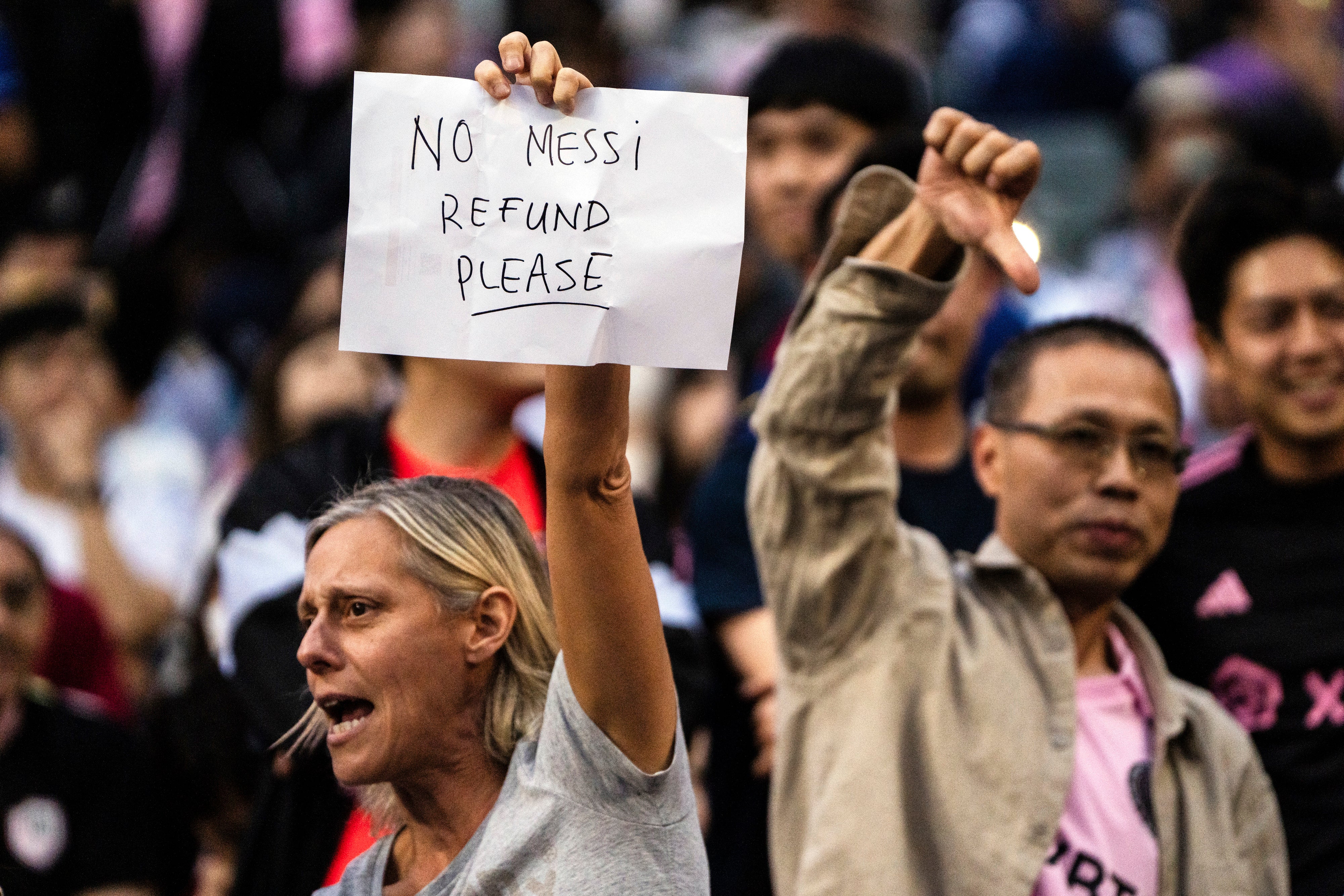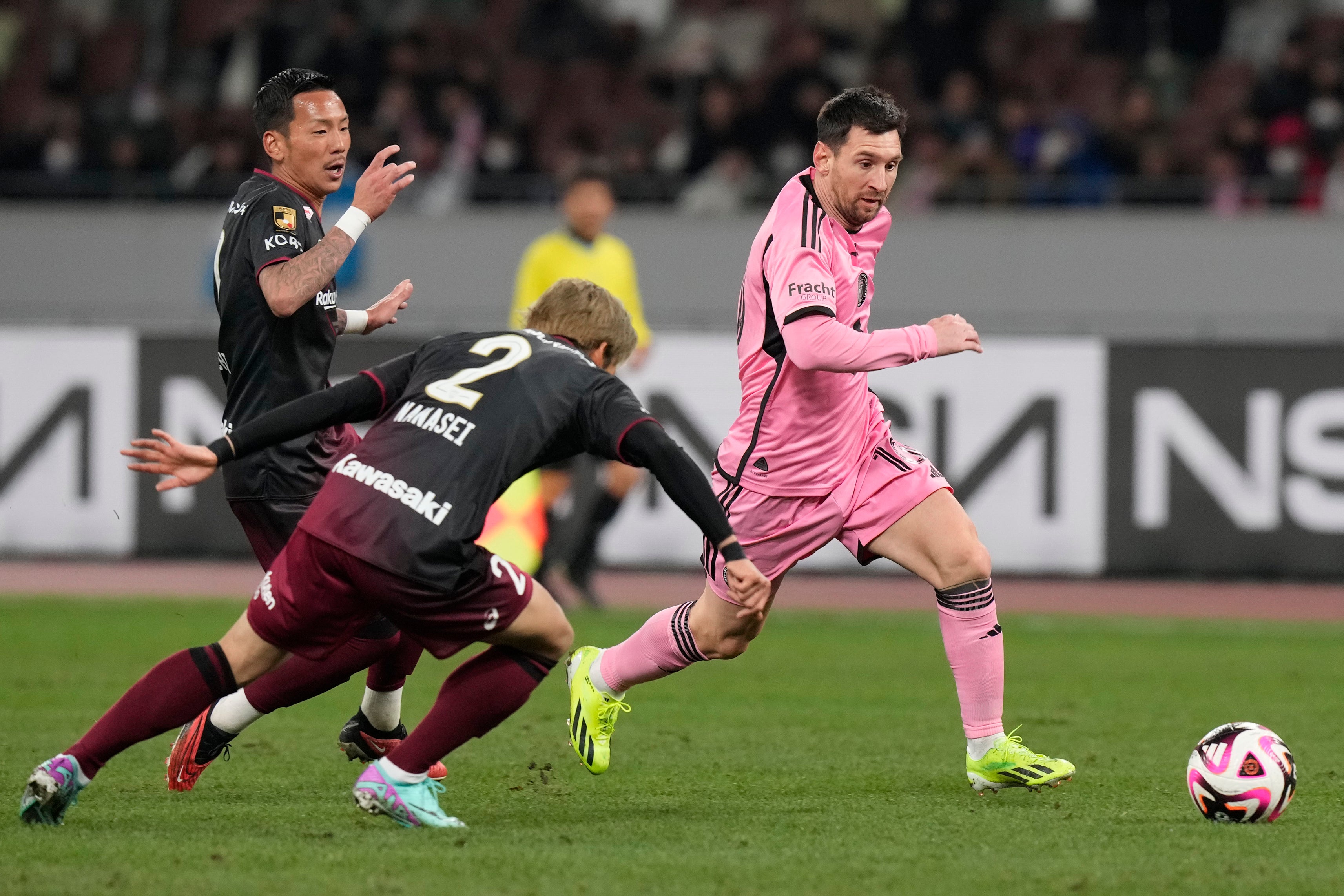Lionel Messi defends decision to miss Hong Kong match after China backlash
Lionel Messi has spoken out defending his position to remain on the bench during Hong Kong match
Lionel Messi highlighted his “special” links with China as the backlash towards him missing a game in Hong Kong continues.
During a pre-season tour for Inter Miami, Messi sat out for his side’s match in Hong Kong on 4 February, but played in Japan just days later, sparking a backlash far beyond aggrieved fans.
The debate took a political turn, and Chinese officials have cancelled two Argentina friendlies which had been due to take place in the country in March.
The Argentinian is very popular in China, and at the time there were numerous calls for refunds from fans who had shelled out hoping to see the former Barcelona forward in action.
At the time he remained on the bench, State media outlet the Global Times accused both David Beckham’s club Inter Miami and Messi himself of “political motives” and that “external forces” wanted to embarrass Hong Kong.

“I’ve heard people say that I didn’t want to play for political reasons and many other reasons that are totally untrue,” Messi said in a video on Chinese social media site Weibo.
“Had that been the case I wouldn’t have even travelled to Japan or visited China as many times as I have.
“Since the start of my career I’ve had a very close and special relationship with China.
“I’ve done lots of things in China: interviews, games and events. I’ve also been there and played many times for FC Barcelona and the national team.
“As I said in the press conference, I had an inflamed adductor and I couldn’t play in the first game in Saudi Arabia.
“On the day before the match (in Hong Kong) I tried to train and made an effort for all those who’d come to watch training. I did all I could.
“It felt a bit better a few days later and that’s why I played a bit in Japan to prepare fitness-wise for everything to come. Because I needed to play and get back up to speed.

“As always, I send good wishes to everyone in China who I’ve always had and continue to have special affection for.
“I hope to see you again soon. A big hug and take care. Bye.”
Messi’s Weibo post attracted a number of comments, including some who remained sceptical of his motives.
At the time, a near-capacity crowd of 38,323 at the Hong Kong Stadium had paid large sums for a ticket, up to $624 (£494) to watch the game, but they have been promised at 50 per cent refund by the organisers.
In its statement, Tatler Asia said it would refund 56 million Hong Kong dollars ($7.2 million) in total, resulting in a loss of 43 million Hong Kong dollars ($5.5 million). Before the refund, its net income stood at 13 million Hong Kong dollars ($1.7 million), the organizer said.
Join our commenting forum
Join thought-provoking conversations, follow other Independent readers and see their replies
Comments
Bookmark popover
Removed from bookmarks